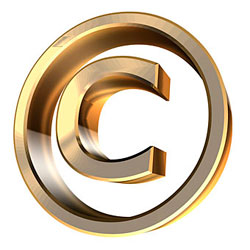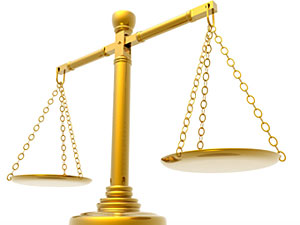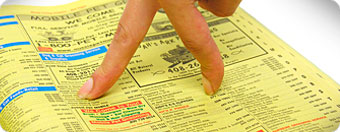FEATURE ARTICLE -
Case Notes, Issue 48: April 2011
Telstra Corporation Limited v Phone Directories Company Pty Ltd1
Appeal
This decision relates to an appeal from the decision of the trial judge, who had considered as a discrete question, whether copyright subsisted in White Pages and Yellow Pages directories as original literary works: Telstra Corporation Limited v Phone Directories Company Pty Ltd [2010] FCA 44 (Gordon J, 8 February 2010). Her Honour concluded they did not.
The case raised the opportunity for the Full Court of the Federal Court to consider the question of copyright in compilations of information, in this case in the context of the directories. The definition of ‘literary work’ in the Copyright Act 1968 (Cth), ‘includes a table, compilation, expressed in words, figures or symbols’.2
The Full Court in Desktop3 (constituted by Black CJ, Lindgren and Sackville JJ), drew from UK cases which identified that originality in a work could be found in the ‘industrious collection’ of factual information. The labour and expense of Telstra involved in collecting, verifying, recording and making judgments in order to create the directories, were seen as worthy of copyright protection. The Full Court considered that this ‘sweat of the brow’ attracted protection against the misappropriation of that labour and expense.
The High Court found an opportunity to comment on the perspective of ‘industrious collection’. In IceTV Pty Limited v Nine Network Australia Pty Limited [2009] HCA 14; (2009) 239 CLR 45, their Honours were not concerned with the issue of whether copyright subsisted in the time and title elements of a TV program guide, as the respondents had admitted copyright subsisted in the program guide. However, the concern was that an overemphasis on the industrious collection of factual information could distract attention from a fundamental element of copyright law, the identification of the author.
 In relation to a literary work, copyright is granted to an author — a person, and even more, an identifiable person. In Ice TV, the High Court at [134], referred to the reasons of the primary judge in Desktop, who identified a difficulty relating to the issue of authorship:
In relation to a literary work, copyright is granted to an author — a person, and even more, an identifiable person. In Ice TV, the High Court at [134], referred to the reasons of the primary judge in Desktop, who identified a difficulty relating to the issue of authorship:
There are literally hundreds of appropriately trained or qualified employees who make some contribution towards the production of a telephone directory. When the nature of the work they do is described, there arise three relevant questions to the subsistence of copyright: (a) Must a copyright work have an author? (b) Does a telephone directory have an author? (c) Is every employee who contributes to the final product a joint author of the directory? These are difficult questions for which there are no ready answers.
Their Honours went on to express some caution with a focus on the misappropriation of ‘industrious labour’ at [188]:
It may be that the reasoning in Desktop Marketing with respect to compilations is out of line with the understanding of copyright law over many years. These reasons explain the need to treat with some caution the emphasis in Desktop Marketing upon “labour and expense” per se and upon misappropriation. However, in the light of the admission of Ice that the Weekly Schedule was an original literary work, this is not an appropriate ccasion to take any further the subject of originality in copyright works.
The principal case for Telstra was that there was individual effort involved in the creation of the directories. Telstra argued that there were a number of processes in creating a compilation and that these could be divided into different stages. It submitted that there were activities involving individuals in the:
- gathering of data;
- its transmission to the Genesis Computer System (a computer system introduced in 2003, into which the listing information had been entered);
- checking and pagination of all of the listings and advertisements in which they appear in the published directory, that is their material form.
Further, Telstra argued that these human contributions were of such significance as to warrant the conclusion of fact that those activities constituted the compilation of the directories.
The core of the dispute in the Full Court focused on a reference in the High Court decision IceTV at [99] to the availability of the protection of copyright in a compilation:
Where a literary work is brought into such existence by the efforts of more than one individual, it will be a question of fact and degree which one or more of them have expended sufficient effort of a literary nature to be considered an author of that work within the meaning of the Act. If the work be protected as a “compilation”, the author or authors will be those who gather or organise the collection of material and who select, order or arrange its fixation in material form…
The dispute was whether the activities involved in compilation should be read disjunctively or conjunctively.
Keane CJ considered at [5], that the applicants had not and could not identify the person or persons who provided the necessary authorial contribution. In addition, it was noted that the trial judge considered that even if the author or authors were able to be identified:
- There was no individual intellectual effort or sufficient effort of a literary nature;
- The contribution to the work was before the work took on its material form;
- The work was computer generated not a human author.
Keane CJ considered that their Honours in IceTV were making the point, in relation to the compilation as a whole, that authorship of a compilation encompassed a number of tasks: [71]. His Honour also considered the mere collection of data could not be regarded as compilation and gave as an example the process of editorial correction of errors at the proofing stage of a compilation, which could not be regarded as authorship: [71].
His Honour considered that Telstra had misconstrued the comments in IceTV at [99], by its argument that the identification by the High Court of stages in the compilation process meant a disjunctive approach to those stages. Further his Honour rejected the submission that the compilation process involved intellectual effort by individuals as a basis to argue that those activities constituted the compilation of the directories: [88].
The Chief Justice found that the directories were not compiled by individuals, but overwhelmingly by the automated processes of the Genesis Computer System or its predecessors: [89] – [90].
Perram J also did not consider the comments of their Honours in IceTV at [99], when taken in context, were intended to support the proposition that collection of information equated to authorial activity: [105] — [109]. His Honour accepted that there was intellectual effort at the collection phase. Relevantly, his Honour considered that ‘[c]omputers and databases were ever-present but on no view would the Collection Phase have been able to proceed without the involvement of significant human activity’: [103]. Notwithstanding, his Honour considered that these human activities were not relevant to the issue of originality as they did not result in the material form of the work: [104].
Yates J concluded at [140], that whilst some activities involved human intervention and the activities of an author, they were not, of themselves, the subject matter of copyright protection:
Thus whilst activities such as gathering or organising the collection of material may be relevant authorial activities for copyright purposes, those activities are not of themselves, once engaged in, the subject matter of copyright protection. It is the fixation in material form of the “work” that attains copyright protection for the “work” in that particular form.
His Honour outlined the human involvement in the process of creating the directories at [146] and [147]. However, Yates J identified that it was not until after data had been extracted from the Genesis Computer System database, that the directory was fixed in material form, known as the ‘Book Extract’: [151].
As his Honour considered the Book Extract to be ‘essentially computer generated’, this was of great relevance to the expression in material form, so that none could be characterized as originating from an author or authors, notwithstanding authorial elements.
The appeal was unanimously dismissed.
 Comment
Comment
It is clear that the High Court in IceTV and the primary judge and the Full Court in this decision have considered that a focus only on the processes antecedent to expression of the compilation may be misconceived and irrelevant. However, the intervention of a mechanical process cannot alone be the basis by which protection is withheld.
If one were to write an article of one page in length, but the spelling was so atrocious that it become necessary to:
- apply a spellcheck program to the work to correct every third word;
- have someone correct the errors but add nothing to the literary content,
it should not be the case that the mechanical process gives rise to a loss of copyright, or a claim to joint authorship by the human corrector. The reason for this is that the correction processes have not interfered in a ‘literary work’ sense, with the expression. Of course the difference in the example given is the ability to identify the author of the work. In this regard, the requirement to identify authorship runs parallel with the requirement to grant a patent to the inventor.4 The commonality shared is that the statutory monopoly should only go to the author or inventor and those claiming through them.
As to what constitutes a literary work, the following statement by Peterson J in University of London Press Ltd v University Tutorial Press Ltd has been approved in numerous UK and Australian decisions:
It may be difficult to define “literary work” as used in this Act [British Copyright Act 1911], but it seems to be plain that it is not confined to “literary work” in the sense in which that phrase is applied, for instance, to Meredith’s novels and the writings of Robert Louis Stevenson. In speaking of such writings as literary works, one thinks of the quality, the style, and the literary finish which they exhibit. Under the Act of 1842, which protected “books”, many things which had no pretensions to literary style acquired copyrights; for example, a list of registered bills of sale, a list of foxhounds and hunting days, and trade catalogues; and I see no ground for coming to the conclusion that the present Act was intended to curtail the rights of authors. In my view the words “literary work” cover work which is expressed in print or writing, irrespective of the question whether the quality or style is high. The word “literary” seems to be used in a sense somewhat similar to the use of the word “literature” in political or electioneering literature and refers to written or printed matter.5
As set out in the commentary ‘Lahore: Copyright and Designs’:6
In the University of London Press case examination papers were held to be “literary works” and the subject of copyright. In other decisions literary works have been held to include a race program, an index to Bradshaw’s Railway Guide, a racing information service, chronological lists of football match fixtures, columns of birth and death announcements in a newspaper and football pool coupons. As Lord Hodson pointed out in the Ladbroke Football case:
The [football pool] coupons are protected, if at all, as compilations which are by definition treated as literary work … The words `literary work’ cover work which is expressed in print or writing irrespective of the question whether the quality or style is high.7
Issues will arise where the facts compiled to create the work require little or no individual intellectual effort, albeit that level required is not high.
Dimitrios G. Eliades
Footnotes
- Telstra Corporation Limited v Phone Directories Company Pty Ltd [2010] FCAFC 149 (Keane CJ, Perram and Yates JJ, 15 December 2010).
- s 10 of the Copyright Act.
- Desktop Marketing Systems Pty Ltd v Telstra Corp Ltd (2002) 55 IPR 1.
- Patents Act s 15.
- University of London Press Ltd v University Tutorial Press Ltd [1916] 2 Ch 601 at 608.
- Lexis Nexis 3rd rev. ed. at paragraph [6010].
- Ladbroke (Football) Ltd v William Hill (Football) Ltd [1964] 1 All ER 465.




 In relation to a literary work, copyright is granted to an author — a person, and even more, an identifiable person. In Ice TV, the High Court at [134], referred to the reasons of the primary judge in Desktop, who identified a difficulty relating to the issue of authorship:
In relation to a literary work, copyright is granted to an author — a person, and even more, an identifiable person. In Ice TV, the High Court at [134], referred to the reasons of the primary judge in Desktop, who identified a difficulty relating to the issue of authorship: Comment
Comment